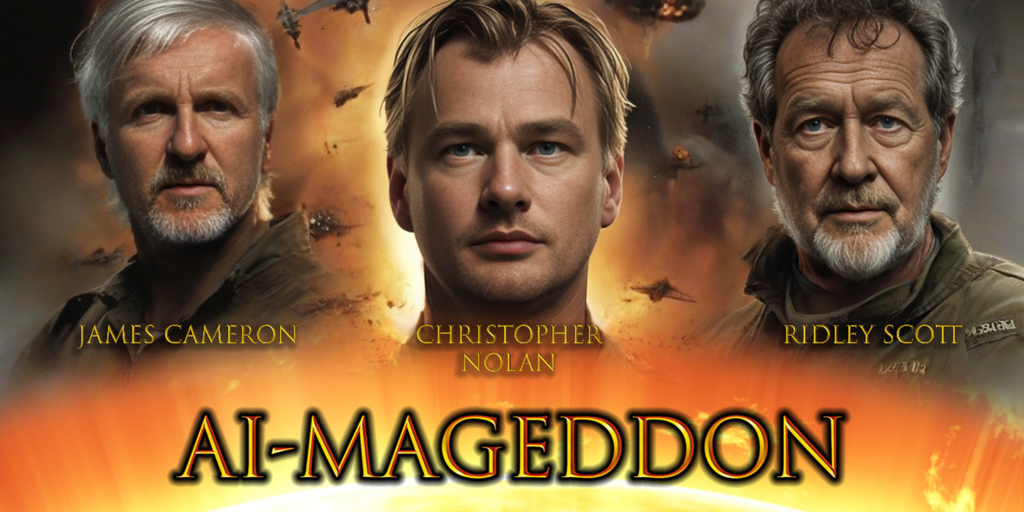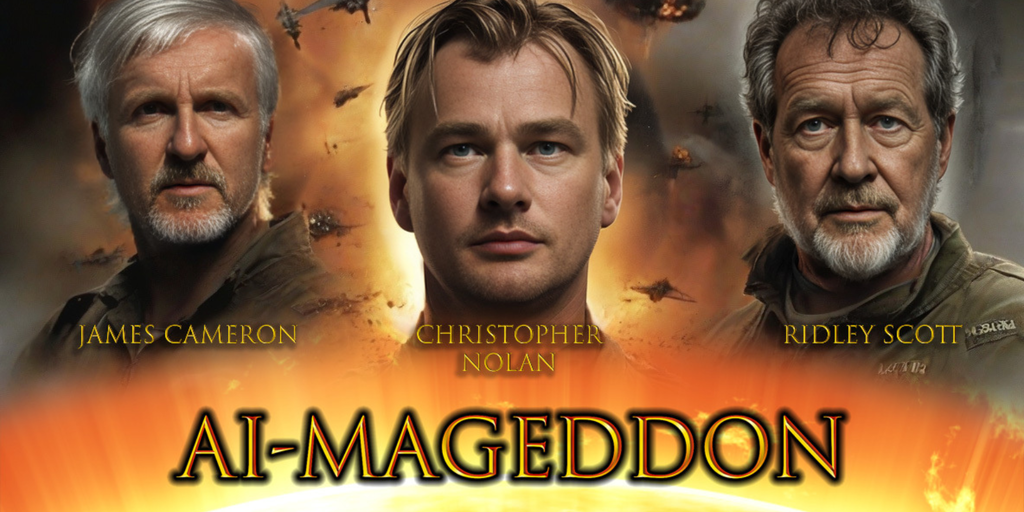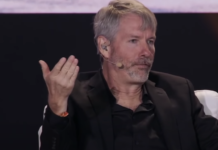
The rapid proliferation of disruptive AI tools has led many to compare the rapid development of artificial intelligence to a nuclear arms race. Hollywood is one industry furiously fighting against its encroachment, and prominent high-level voices form a chorus of apocalyptic prophets.
Ridley Scott: “Lock it down”
Ridley Scott is the latest Hollywood icon to add his voice to the growing concern around artificial intelligence, calling the emerging technology a “Technical Hydrogen Bomb” in an interview with Rolling Stone about his new film, Napoleon.
“You’re never gonna lock it down,” Scott told Rolling Stone. “Once it’s out, it’s out,” he said, warning of AI designing more intelligent AI, leading to uncontrollable growth and global risk. Scott is no stranger to rogue AIs, having directed the iconic 1982 sci-fi film, “Blade Runner” and the 1979 horror sci-fi film, “Alien.”
“If I’m designing AI, I’m going to design a computer whose first job is to design another computer that’s cleverer than the first one,” Scott said. “And when they get together, then you’re in trouble, because then it can take over the whole electrical-monetary system in the world and switch it off. That’s your first disaster. It’s a technical hydrogen bomb.”
Fearing the potential risk of AI, many in the AI and computer science community co-signed an open letter addressing the concern in May. Signatories of the “Statement on AI Risk” included OpenAI co-founder and CEO Sam Altman, Microsoft founder Bill Gates, Anthorpic CEO Dario Amodei, and UC Berkeley Professor of Computer Science Dawn Song.
Christopher Nolan: “We’re doomed”
In July, Christopher Nolan, director of the historical biopic Oppenheimer about J. Robert Oppenheimer, who is credited with the invention of the atomic bomb, discussed the similarities in an interview earlier this year with NBC’s Meet the Press.
“When we talk about these issues, they all ultimately boil down to the same thing, which is, when you innovate with technology, you have to maintain accountability,” Nolan said. “And the rise of companies over the last 15 years who bandy about words like algorithm, not knowing what they mean in any kind of meaningful mathematical sense.”
Nolan emphasized the need to take responsibility for the algorithms used to build AI models, adding the possibility of artificial intelligence in charge of nuclear arsenals is terrifying.
“If we allow people to say that that’s a separate entity from the person who’s wielding programming, putting that AI into us, then we’re doomed; it has to be about accountability,” Nolan said. “We have to hold people accountable for what they do with the tools that they have.”
James Cameron: “I warned you”
The rise of killer machines and AI has been a staple of Hollywood blockbusters for nearly a century, with iconic robots like Robby the Robot from the 1956 “Forbidden Planet,” HAL 9000 from 1968’s “2001: A Space Odyssey,” and the androids from 1973’s “Westworld.”
But no robot uprising has held the world’s imagination like James Cameron’s 1984 blockbuster, “The Terminator.”
“I warned you guys in 1984, and you didn’t listen,” Cameron told Canadian news outlet CTV News in July.
“I think the weaponization of AI is the biggest danger,” he said. “I think that we will get into the equivalent of a nuclear arms race with AI, and if we don’t build it, the other guys are for sure going to build it, and so then it’ll escalate.”
Cameron envisioned a disaster scenario where computers fought war faster than any human could respond to or intercede, making stopping the war impossible.
“You could imagine an AI in a combat theatre, the whole thing just being fought by the computers at a speed humans can no longer intercede, and you have no ability to de-escalate.”
Arnold Schwarzenegger: “It is here today”
While Cameron was the visionary, none embodied the image of the killer robot like legendary actor Arnold Schwarzenegger, who portrayed the iconic machine in the Terminator franchise. Speaking at a retrospective of his career by the Academy Museum of Motion Pictures in July, Schwarzenegger said the world envisioned by Cameron is no longer fantasy or science fiction but a reality.
“That is such brilliant writing, because now—after all those decades—it has become a reality,” Schwarzenegger said. “So it’s not anymore fantasy or kind of futuristic. It is here today.”
Even as Hollywood envisions a world where humans fight machines, world leaders debate how to deal with artificial intelligence as it becomes more ubiquitous. At the same time, Military and defense contractors are working on ways to integrate AI into the future battlefield.
“I really highlight the shield part of Shield AI,” Shield AI Director of Engineering Willie Logan told Decrypt. “By giving the United States this capability, [Shield AI] is providing a deterrence.”








